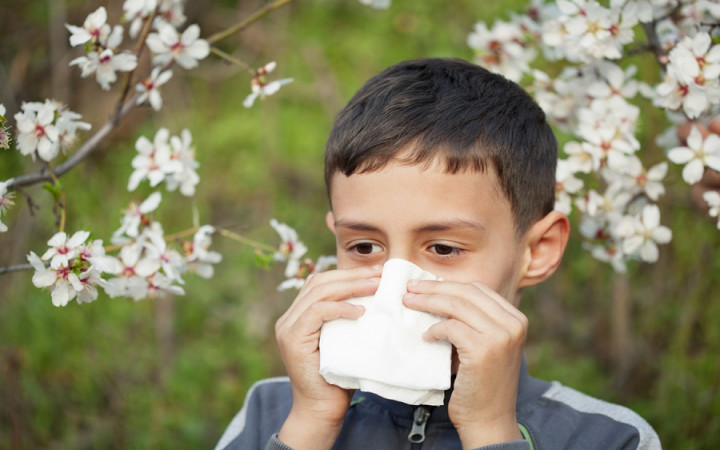Today’s Wonder of the Day was inspired by Wyatt from AL. Wyatt Wonders, “How do you get allergies?” Thanks for WONDERing with us, Wyatt!
For some people, it's the blooming flowers of springtime. For others, it's a hug from a dog or a cat. For many people, it might be a peanut hidden in a dessert. What are we talking about? These are just a few things that might trigger allergies!
You're probably familiar with allergies in some way, shape, or form. If you're like most people, you might be allergic to something, or even a few things. If you're not allergic to anything personally, you probably know someone who suffers from allergies.
Do you have a parent who's allergic to cats? How about a neighbor who's allergic to pollen from blooming springtime flowers? Perhaps you have a classmate who's allergic to peanuts or another type of food?
Allergies can cause all sorts of unwanted effects. Itchy eyes, runny noses, sneezing, coughing, and even itchy, painful hives are all different types of effects you might see as a result of an allergic reaction.
When your body experiences an allergic reaction, what's actually happening is your body's immune system is interpreting something usually considered harmless — such as cat hair or a peanut — as a harmful threat to your body. These things that trigger allergic reactions are called allergens.
Mistakenly trying to protect you from a harmless allergen, your immune system produces antibodies to that allergen. Those antibodies in turn cause certain cells in your body to release chemicals called histamines into your bloodstream. It's these histamines that cause the symptoms you notice as an allergic reaction.
Many people with allergies learn to live with and treat the symptoms of allergic reactions as they arise. Some allergic reactions, however, can be dangerous and even deadly. For example, some allergic reactions can trigger asthma attacks that make breathing difficult. An even more severe type of allergic reaction, known as anaphylaxis, can cause problems with breathing and swallowing that can be deadly if not treated quickly.
People can be allergic to all sorts of things. Some of the most common allergies are to foods, such as dairy products, eggs, peanuts, seafood, soy, and wheat. Many people are also allergic to a wide variety of insect bites and stings. Other common allergies involve reactions to dust, mold, animal dander, pollen, chemicals, and medicines.
So how do you get allergies? Scientists have discovered that a tendency to develop allergies is often hereditary, which means it's passed down through your genes from your parents. People usually don't inherit specific allergies, though. Instead, children of parents with allergies are more likely to develop allergies themselves.
How likely? If one parent is allergic, a child has a 50% chance of having allergies. If both parents have allergies, there's a 75% chance that their children will develop allergies, too.
Sometimes people are born with allergies to certain things. As they get older, they often outgrow these childhood allergies. Unfortunately, it's also possible to develop new allergies over time as you grow up. Not everyone suffers from allergies. If you have allergies, though, don't worry. You're not alone! The National Institutes of Health estimates that over 50 million Americans suffer from allergies.




